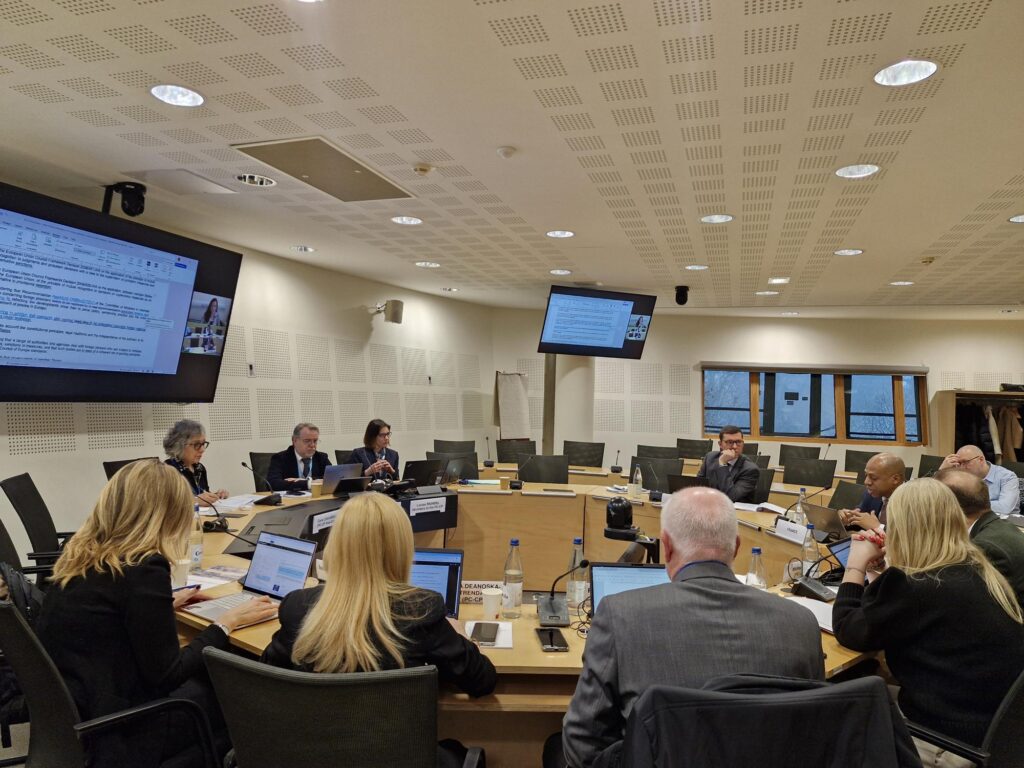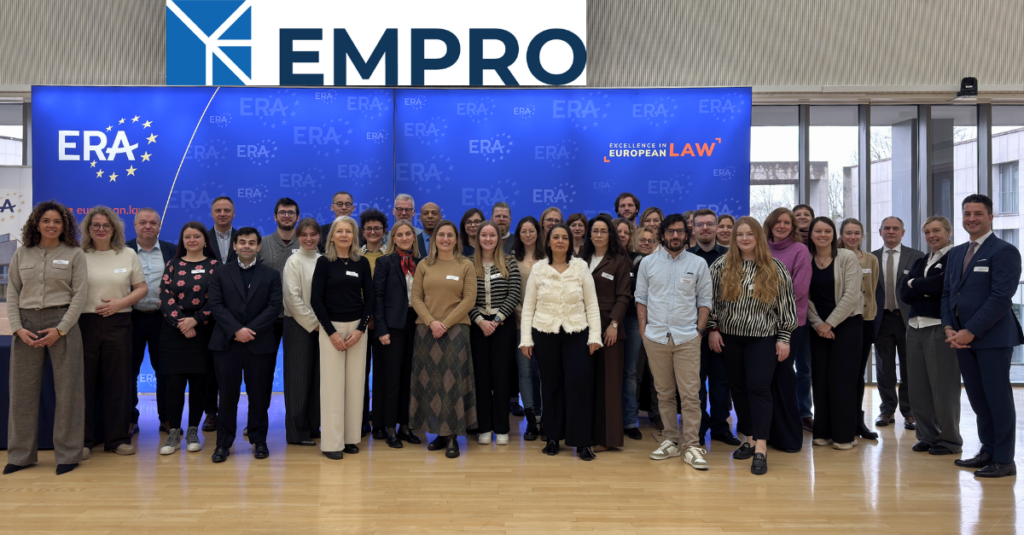Previous Article
News
Jihadist Dehumanisation Scale[1]: an interesting way to assess radicalisation
This article is written by researchers from the University of Nantes, France.
A large literature review published in 2015 by the International Center for the prevention of Crime [2] summarises some research conclusions (page 45) about radicalisation models:
- Radicalisation “trajectories” approach: “compared to the weaknesses of profile studies, can generate a better understanding of the gradual engagement process among individuals”;
- According to Christmann [3] (2012), these models concur that the radicalisation process implies an individual change determined by external factors.
From a clinical psychology point of view, the “individual change” is relevant to analyse. Indeed, one of the limits of all radicalisation models is that they do not answer to the question why this individual’s change sometimes happens and sometimes not, especially “that people who experience the same phases do not necessarily become radicalised” (page 45). We can also add that people who experience the same phases do not necessarily become violent.
The International Center for the prevention of Crime literature review identifies two models (McCauley & Moskalenko [4] (2008) and Stahelski [5] (2005)), out of six trajectories of homegrown radicalism in the West, involving dehumanisation as a stage before any violent action ideologically motivated. Dehumanisation, which is the act of perceiving or treating people as if they are less than human, might constitute the “individual change” that occurs for violent individual in a context of Muslim radicalisation, even if transitions mechanisms are not very clear. Dehumanisation has emerged as a major research issue on intergroup relations in the last sixty years, especially on racial and ethnic discriminations and violence, but also more recently on intergroup relations with immigrants, asylum seekers, psychiatric patients, etc. (Haslam & Stratemeyer [6], 2016).
The research assumption underlying Jihadist Dehumanisation Scale is that Jihadist dangerousness is considered to be directly linked with the dehumanisation level, understood in its psychological sense and which leads attacks perpetrators to consider as “non-human” those who do not share the same ideology. Dehumanisation represents therefore a key process in terms of dangerousness assessment.
Another research assumption is that in radicalisation context, violent action is considered as a behavioral consequence of cognitive and emotional changes. Consequently, cognitive and emotional dehumanisation determinants are relevant to detect in prevention purposes, and as early as possible.
According to their experience with radicalised people (in psychotherapy or research contexts) a team of psychologists and researcher from the University of Nantes (France) have clearly identified several stages between elements (emotional and cognitive aspects and not only behavioural ones) embodying freedom of conscience and religion, and others that characterise dehumanisation.
To focus on psychological processes underlying each stage presents many advantages:
- To position the debate in a psychological reference framework, and therefore to take distance from the controversy around radicalisation, Islam and violence;
- To use scientific methods to assess specific stages indicators (in terms of psychometric methodology for scale validation);
- To take into consideration the high variability of situations that were described by practitioners;
- To avoid any discrimination against Muslim practices that can be considered as freedom of conscience and religion, and at the meantime without ignoring that a certain radical vision of Islam precedes dehumanisation..
Jihadist Dehumanisation Scale purpose is therefore to assess, according to observable emotional, cognitive and behavioral indicators:
- The potential dangerousness of an individual;
- The cumulated indicators of radicalisation.
Another research assumption is that the more an individual cumulates radicalisation indicators, the more he is likely to become dehumanised and therefore potentially dangerous, even if transitions mechanisms need further researches.
In other words, Jihadist Dehumanisation Scale objectifies dangerousness by a score that positions the individual in one specific stage. Consequently, it presents a comparative advantage in terms of
- Synchronic comparison between several individuals assessed at the same moment;
- Diachronic comparison for the same individual assessed at different moments, his trajectory in terms of increased engagement or disengagement.
Moreover, Jihadist Dehumanisation Scale can be ranged between “Structured professional judgment tools and enables to standardise the risk assessment procedure for professionals facing radicalisation in their work environment, on the basis of a psychometric scale with scientific evidence. It is important to underscore that Jihadist Dehumanisation Scale is applicable outside prison and for professional use only. It is adapted for assessment purposes of non-prosecuted individuals by people working with youth, childcare services, police etc. and by probation services for individuals followed-up during their probation period.
Last but not least, concerning concealment risk (or dissimulation practices) that has to be taken into consideration with radicalised people, a specific score interpretation method enables to objectify it.
Compared with other existing risk assessment tools the DDS presents two advantages that have to be supported by more statistical evidence:
- Capacity to assess concealment risks and possibly to reinforce the concealment assumption;
- In the scoring method for each item, the reference to a specific psychological process and not a score (to be assessed by the professional) of “low”, “medium” or “high” risk often used in other tools).
For professionals facing radicalisation in their work environment, Jihadist Dehumanisation Scale aims to be a useful working tool, simple (25 items) and easily accessible with a short training. The scale has been introduced in French and can be translated in other languages, provided that the psychometric approach has to be respected for another language use. The first conclusions are encouraging regarding the Jihadist Dehumanisation Scale relevancy to assess jihadist dangerousness and also, in some extent, concealment risk.
Are you interested in more information about Dehumanisation Scale, please contact: radicalisation-psychometrics@univ-nantes.fr
[1] Djihadist Dehumanization scale was developed in the University of Nantes (France) and registered in April 2017 in Institut National de la propriété intellectuelle (french national institute for intellectual property).
[3] Christmann, K. (2012). Preventing Religious Radicalisation and Violent Extremism. London.
[4] McCauley, C., & Moskalenko, S. (2008). Mechanisms of political radicalization: pathways toward terrorism. Terrorism and Political Violence, 20(3), 415–433.
[5] Stahelski, A. (2005). Terrorists are made not born: Creating terrorists using social psychological conditioning. Cultic Studies Review, 4(1), 1–10.
[6] Haslam, N & Stratemeyer, M. (2016). Recent research on dehumanization. Current opinion in psychology, 11, 25-29.

Related News
Keep up to date with the latest developments, stories, and updates on probation from across Europe and beyond. Find relevant news and insights shaping the field today.

CEP Board
Interview with new CEP board member Jana Bewersdorff
19/02/2026
During the General Assembly in Austria, a new CEP Board got elected for the upcoming three years. In the coming weeks we will publish interviews with all newly-elected board members where they will share information on their professional background, how they would like to contribute, what challenges lie ahead and many more.
Enjoy reading!
Recap

Research
Recap: Expert group on Research
18/02/2026
The Expert Group on Research met on 17 February at the CEP office in Utrecht, The Netherlands, for its annual face‑to‑face meeting.
New

CEP members
New CEP member: Killian Evert
17/02/2026
In recent weeks, CEP has interviewed individual members and representatives of the new member organisations that joined CEP at the beginning of 2026. In these interviews, the new member organisations or individual members will share information on why they decided to become members, how they would like to contribute to the development of CEP and many more.
Enjoy reading!
New

CEP Board
Interview with new CEP board member Line Elisabeth Wilberg
11/02/2026
During the General Assembly in Austria, a new CEP Board got elected for the upcoming three years. In the coming weeks we will publish interviews with all newly-elected board members where they will share information on their professional background, how they would like to contribute, what challenges lie ahead and many more.
Enjoy reading!
New

Probation in Europe
CEP at 40th PC-CP Working Group Meeting
09/02/2026
CEP actively participated in the meeting of the Council of Penological Co-operation (PC-CP) of the Council of Europe. Through its involvement, the organisation contributes meaningfully to the work of the PC-CP by representing the voices and professional experience of probation practitioners across member countries and jurisdictions. CEP Vice-President Ms Danijela Mrhar Prelić is a member of the PC-CP Working Group and actively participates in all meetings.
New

Probation in Europe
CEP at the EMPRO Symposium hosted by ERA
04/02/2026
CEP actively contributed to the EMPRO Knowledge Exchange Symposium hosted by the Academy of European Law (ERA) in Trier on 28–29 January, bringing together practitioners, policymakers, and researchers to reflect on the implementation of EU Framework Decisions in probation and supervision.
Subscribe to our bi-monthly email newsletter!
"*" indicates required fields
- Keep up to date with important probation developments and insights.

